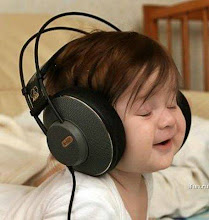On Beethoven, Romanticism and Dissonance
The last orchestral composer I visited was Johannes Brahms. Since then, I’ve been slowly working my way through the output of Beethoven, who in my mind serves as a bridge between formal classicism and wild-man Romanticism.Of course, he’s probably best known for the first movement of the Fifth Symphony, but I’ve gotta say that so far, (having not heard all of the Symphonies), I’m more of a fan of the Sixth- the Pastoral Symphony. The absolutely revolutionary idea behind this particular work is its introduction of the idea of a program- a non-musical component attached to the piece. This is one of the first instances in which the music was intended to stand for something specific, to invoke particular images for the listener-- namely country folks dancing, birds singing, and a thunderstorm. In service of this goal, he also chose to blur the lines between the five movements, (a pretty large break with tradition in itself), having some segue together rather than have definite, abrupt ends to each one. These are big ideas and one of the reasons Beethoven straddles the fence between the classical world, (which is still audible in his work: regular phrase lengths and predictable cadences, strings-heavy orchestration, etc.) and the Romantic world.
But his departure from “absolute music” aside, I gotta say I just like a couple of the melodies and harmonic turns in this piece. The fact that I can recall them in my head at all puts it above 75% of the orchestral music I’ve heard.
I have also revisited the 1st Symphony lately. I remember being grabbed in my college days by Beethoven’s choice to start this whole work with a sustained, unstable Dominant 7th chord--highly unorthodox for the time. Back in those college days we had a visiting French conductor/professor who cited this fact in a presentation which posited that the development of musical harmony through the centuries could be tracked pretty accurately by how much dissonance composers would allow in their music. Which, according to my music history teacher, was a novel concept. It made all the sense in the world to me at the time.
I’m a little bit more circumspect these days. If the history of orchestral art music has been a progression of more and more dissonant chords, what are we to make of Philip Glass, Erik Satie, Aaron Copland, or other successful, relevant post-serialists who chose not to employ every ugly chord that was now possible and deemed acceptable?
But I don’t want to seem like a stuffy, conservative traditionalist. The fact is I love a lot of dissonant, contemporary music just as much as I love the music of Bach. I just think that dissonance can’t be the only element that we track when looking at the development of musical aesthetics.


2 Comments:
I agree. As incredibly important as harmony is, Western music historians tend to focus almost entirely on its development from the beginnings of leading tones and major and minor keys in the pre-Baroque period through the utter dissolution of functional harmony by Shoenberg's 12 tone system in the early 20th century. Orchestration, form and the role of musician in society get nods as well I suppose, but harmony is a nifty way to chart music's evolution. too nifty perhaps!
I think that the OVER emphasis on composer is even more extreme in music history. Performance practice, famous conductors, singers, teachers, instrumentalists, etc. get a bit of the cold shoulder from modern historians. it's all composer this and composer that.
gotta love those composers though......
tough to go wrong with Beethoven. he's like the Beatles. Music nerds love to sit around and try to point out their worst moments, since it's all pretty much uniformly great. (boy, he sure missed the mark with "Wellington's Victory"! I hate "Hello, Goodbye"! [not really])
I never thought about the "cult of the composer" before, Steven.
I just recently read _The Last Lone Inventor_ about the guy who invented television and it brings up the idea of IMPORTANT INDIVIDUALS in history, specifically with regard to technological breakthroughs.
We just like to hang our hats on characters, don't we? It's like we want history to be an engaging story and the only way to do that is to fill it with memorable people.
I tend to be more interested in the development of ideas--which work signaled the death of tonality or who wanted to reflect nature in their work, etc.
That's why I can't ever remember who died of tuberculosis or who was beholden to the Esterhazy family.etc.!
And I happen to love harmony. It's about the only thing I listen for in music. But I realize that there are a lot of other choices when discussing music's development.
As far as Beethoven and The Beatles-- That's a great comparison! Just about everybody has at least heard of both of them. (Although I've never been in a conversation about "Wellington's Victory" before!) :-P
Now that you mention it--Beethoven may be the Jim Morrison of the classical world! He is some kind of strange classical-pop icon. His is probably the most famous face from the 1800s wouldn't you say? That wild man hair and dark, tortured eyes? (I watch the tattoo show Miami Ink and they always make sure to show Kat's poster of Beethoven in the background...)
Here's to seeking out new areas of musical thought!
:-)
Post a Comment
<< Home